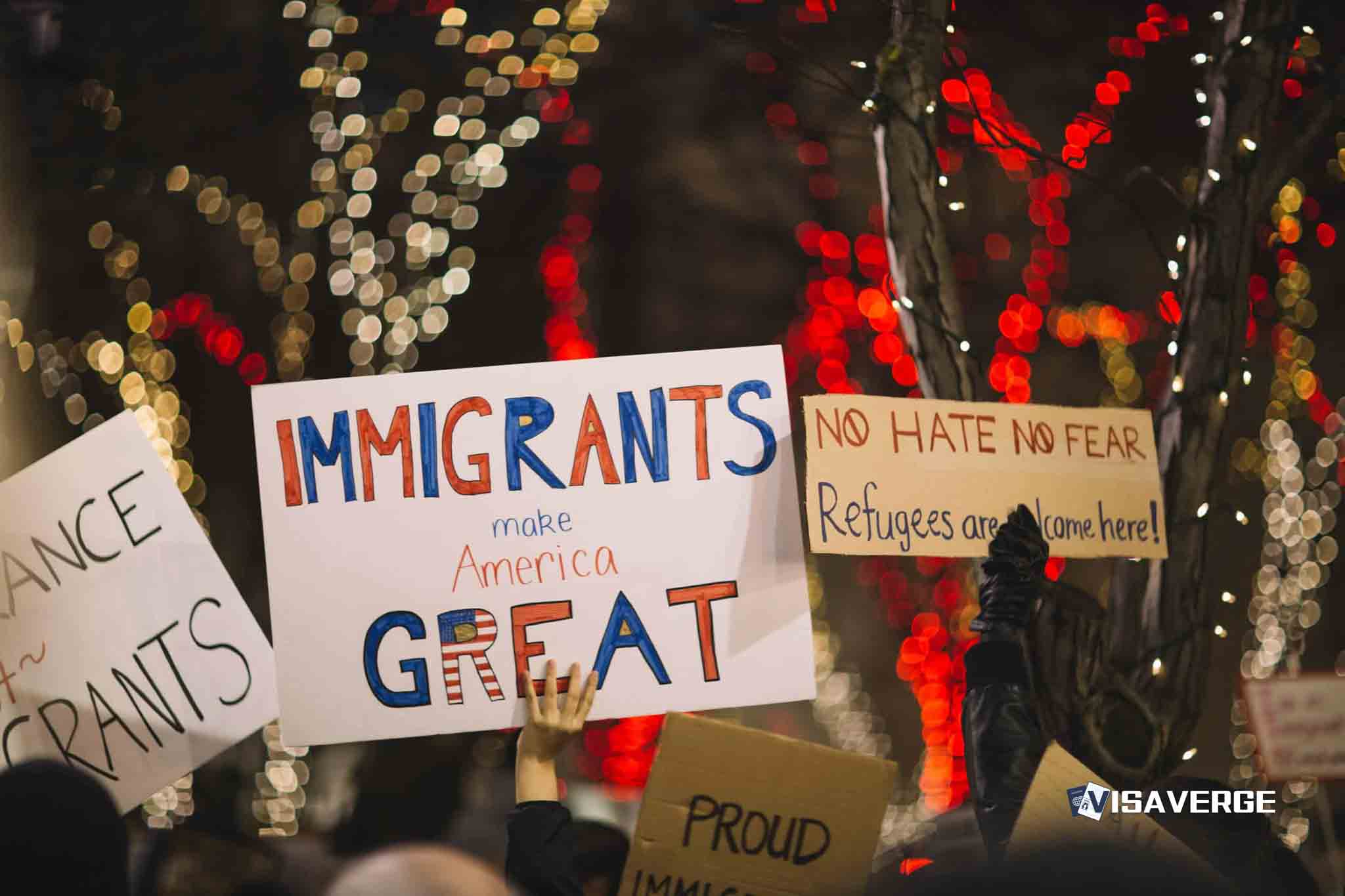Key Takeaways
- Musk’s immigration views are controversial due to his history, highlighting challenges immigrants face when legalizing status.
- He supports strict immigration enforcement, yet also advocates for legal pathways for skilled immigrants, showing nuanced perspectives.
- Criticism arises from Musk’s perceived inconsistency, impacting public discussions and debates on U.S. immigration reform.
Elon Musk, a name synonymous with innovation in technology and space exploration, is now also a prominent figure in the U.S. immigration debate. Though Musk is widely known for his entrepreneurial achievements, his past interactions with U.S. immigration laws add a layer of complexity to his current views. His outspoken opinions on illegal immigration have provoked considerable controversy, not least because of his personal history, which reflects the nuanced challenges faced by many immigrants.
Musk’s journey to the United States began with his move from South Africa to pursue a career in technology. Arriving with aspirations of entrepreneurship, Musk established his first company, Zip2. However, reports indicate that during this period, Musk may have overstayed his visa, placing him in a precarious legal situation that Kimbal Musk, his brother, would later describe as involving “illegal immigrants.”

Despite encountering legal hurdles, Musk successfully became a U.S. citizen in 2002, nearly a decade after first arriving. Although the precise manner in which Musk navigated the immigration system remains unclear, his path mirrors the broader challenges many immigrants face when trying to regularize their status.
In recent years, Elon Musk has voiced strong opinions on illegal immigration, advocating for stricter enforcement and supporting mass deportations of those living in the U.S. without legal authorization. This stance places him in alignment with political groups that favor tougher immigration controls. However, Musk’s perspective on immigration is not monolithic; he also supports enhancing legal pathways for individuals deemed diligent and able to contribute, thus highlighting the complexity of the immigration discussion concerning balance between law enforcement and compassion.
Musk’s opinions on illegal immigration have attracted criticism, especially due to the apparent irony of his situation versus his stance. Some argue that this inconsistency undermines the validity of his rhetoric and could continue narratives that misrepresent immigrants. This critique is amplified by his influential presence on social media, particularly after his acquisition of Twitter (now X) in 2022. His posts occasionally support conspiracy theories about immigration policies during the Biden administration, further sparking debates about how influential figures shape public views on immigration.
The discussion around Musk’s role and viewpoints bring to light broader issues within the U.S. immigration system. His personal experience demonstrates the complexities immigrants face under current laws, which experts suggest require comprehensive reform. The U.S. immigration system is often labeled as inefficient and complicated, deterring entrepreneurial efforts and hindering the economic potential of immigrants.
Elon Musk’s personal narrative and public stance shed light on the need for a reformed immigration system that effectively addresses enforcement while offering realistic legal pathways for undocumented individuals. The current inefficiencies and complexities can particularly affect those like Musk, who aspire to contribute significantly to the economy.
As someone who has firsthand experience with these legal intricacies, Musk’s call for stricter enforcement raises important questions about fairness in policy and its consistent application. His involvement in the immigration debate challenges policymakers to consider how current laws balance security requirements with opportunities for immigrants seeking better lives in the United States.
The debates Musk participates in concerning immigration reflect ongoing conversations in American society. Influential figures can significantly shape these debates, and whether their voices push for reform or stricter enforcement, they fuel broader discussions. These discussions are essential in determining how the U.S. can manage immigration in a way that ensures both national security and the potential for immigrants to contribute meaningfully to the country’s development.
In conclusion, Elon Musk’s stance on illegal immigration, backed by his complex history with U.S. immigration, is both influential and controversial. As someone who has personally navigated the system’s challenges, his support for strict enforcement and reforms raises critical questions about how immigration policies can be fair and consistent. The voice of Musk and others like him drives the conversation forward, influencing how innovations in policy might balance security with the aspirations of those seeking a new beginning in America.
For those interested in the intricacies of U.S. immigration and reform, VisaVerge.com provides insightful analysis and data on current trends and discussions. Moreover, official sources such as the U.S. Citizenship and Immigration Services (USCIS) offer direct links to immigration forms and procedures, which can be found at USCIS. These resources offer invaluable information for anyone navigating the complexities of immigration law.
Learn Today
Entrepreneurial: Relating to someone who starts and operates a business, often taking on financial risk in hopes of profit.
Overstayed: Remaining in a country longer than legally permitted by a visa or other immigration authorization.
Regularize: To adjust or adapt a status to comply with legal or official norms, especially in the context of immigration.
Monolithic: Uniform and unchanging; often refers to a single, unvarying viewpoint or approach, lacking diversity or flexibility.
Conspiracy theories: Beliefs that events are secretly manipulated by a group, often without credible evidence, affecting public perception or debate.
This Article in a Nutshell
Elon Musk, known for technological innovation, is immersed in the U.S. immigration debate. Despite facing visa difficulties early on, he became a U.S. citizen in 2002. Now, Musk’s advocacy for strict immigration laws contrasts with his journey, underscoring the system’s complexities and spotlighting debates about fairness and reform.
— By VisaVerge.com
Read more:
• Elon Musk’s Views on Economic Impact of Illegal Immigration and Housing Affordability
• Immigration Crisis in USA: Elon Musk’s Comments and Housing for Immigrants in Massachusetts
• Elon Musk Slams H-1B Visa Rules Amid Legal Immigration Debate
• Tesla Layoffs Impact Indian H-1B Worker Facing Visa Deadline
• Sadiqulla Baig Detained in Bengaluru Fake Visa Arrest












